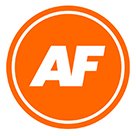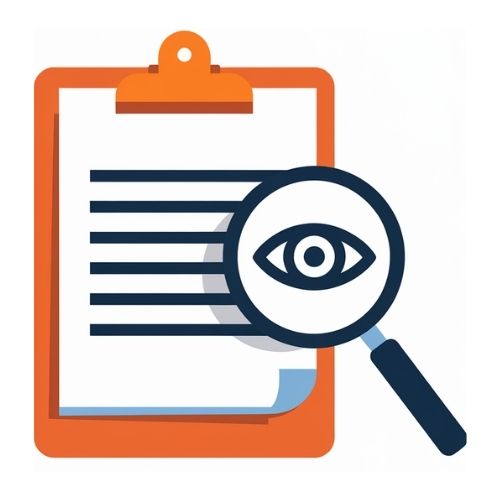
Income-based loans are a type of credit where your earnings determine if you qualify and how much you can borrow. Many South Africans use these loans when they have a steady income but limited or poor credit history. Lenders focus on payslips, bank statements, or proof of regular income instead of credit scores. This makes income-based loans suitable for employed individuals, freelancers, and the self-employed. They are often used for covering urgent costs, managing debt, or short-term needs.
Key Takeaways
- Approval Based on Income: Income-based loans are suitable for South Africans with steady earnings but limited credit history. Lenders assess payslips, bank statements, or other proof of income to decide on loan eligibility and amount.
- Different Loan Types Available: Borrowers can choose from several options such as payday loans, credit union loans, payday alternative loans (PALs), or peer-to-peer (P2P) loans, each with different repayment terms, interest rates, and credit check requirements.
- Simple Application Process: Applying involves verifying income, submitting documents like ID and proof of residence, and choosing a registered lender. Many offer fast approval and same-day payouts.
How Do Income-Based Loans Work?
Income-based loans are personal loans designed for individuals who may have limited or poor credit records. Instead of placing a heavy emphasis on your credit score, lenders assess whether your current income is enough to manage regular repayments. The idea is straightforward: if you have a stable job or reliable earnings, lenders are more confident that you can repay the loan on time. This makes it easier for people with steady income but low credit ratings to qualify. These loans often come with quicker approval times compared to traditional credit-based options.
For those needing financial support between paydays or trying to cover overdue expenses, income-based loans can provide fast access to funds during a tight period.
About Arcadia Finance
Secure your loan easily with Arcadia Finance. No application fees, 19 trusted lenders, all NCR-compliant. Fast, safe, and tailored to your needs.
Types of Income-Based Loans Available in South Africa
Below is a breakdown of common loan types where approval is based primarily on income rather than credit score. Each loan comes with different conditions, interest rates, and repayment expectations.
Payday Loans
These are short-term loans meant to help borrowers cover urgent expenses until their next salary is paid. Interest charges are extremely high, often going beyond 300% APR. Repayments are normally due in full on the borrower’s next payday. Missing the due date can seriously affect your credit score.
Credit Union Loans
These loans are issued by non-profit organisations that serve their members. The interest rates are usually lower than those charged by banks and payday lenders. Repayment periods may vary and are often more flexible than those offered by commercial banks. Credit score requirements may be more relaxed, but defaulting can still have a negative impact on your record.
Payday Alternative Loans (PALs)
PALs are small, short-term loans offered by registered credit unions. They are designed as a safer choice compared to payday loans. Repayment can be spread over 1 to 6 months. These loans often do not require a credit check, but not paying them back can still damage your credit standing.
Peer-To-Peer (P2P) Loans
These loans are funded by individuals who invest their money through online lending platforms, instead of through traditional banks. Interest rates can be competitive, especially for borrowers with good credit records. Repayment terms usually range from 3 to 5 years. A credit check is required, and failing to pay can result in serious credit score damage.

How To Apply For An Income-Based Loan In South Africa
Applying for an income-based loan in South Africa is a straightforward process. These loans focus primarily on your income rather than your credit history, making them accessible to individuals with various employment types. Here’s a step-by-step guide to help you through the application process.

Determine Your Eligibility
Before applying, ensure you meet the basic eligibility criteria:
- Age: You must be at least 18 years old.
- Residency: You should be a South African citizen or a permanent resident.
- Income: A regular monthly income is required. The minimum income threshold varies by lender but typically starts from R2 000 to R3 000 per month.
- Bank Account: An active South African bank account where your income is deposited.

Gather Necessary Documentation
Prepare the following documents to support your application:
- Identification: A valid South African ID book or Smart ID card.
- Proof of Income: Recent payslips or bank statements (usually the last three months) to verify your income.
- Proof of Residence: A utility bill or similar document not older than three months.
- Additional Documents: Depending on the lender, you may need to provide additional documents, especially if you’re self-employed or have alternative income sources.

Choose a Lender and Apply
Use Arcadia Finance, a trusted loan comparison website, to quickly compare income-based loan options from reputable South African lenders. With no application fees and full compliance with the National Credit Regulator (NCR), you can research, select, and apply to a lender that suits your financial needs. Many providers offer secure online platforms, making the application process fast and convenient.

Complete the Application Form
Fill out the application form with accurate personal and financial information. Ensure all details match the documents you’ve prepared to avoid delays.

Submit Your Application and Documents
Submit your completed application along with the required documents. Online applications typically allow you to upload scanned copies directly through the lender’s website.

Await Approval
Once submitted, the lender will assess your application. This process involves verifying your income and evaluating your ability to repay the loan. Some lenders may provide feedback within 24 hours.

Review and Accept the Loan Offer
If approved, you’ll receive a loan offer detailing the amount, interest rate, repayment terms, and any associated fees. Review these terms carefully. If you agree, sign the loan agreement to proceed.

Receive Funds
After accepting the loan offer, the funds will be disbursed to your bank account. The time frame for this varies by lender but can be as quick as within 24 hours.
Pros and Cons of Income-Based Loans
Income-based loans are designed to assess your ability to repay a loan based primarily on your income rather than your credit history. This approach is particularly beneficial for individuals with limited or poor credit records but who have a consistent income stream.
Pros of Income-Based Loans
- Accessibility for Various Income Types: Income-based loans are accessible to individuals with diverse income sources, including salaried employees, freelancers, and self-employed individuals. Lenders typically require proof of income, such as payslips, bank statements, or tax returns, to assess your ability to repay the loan.
- Flexible Repayment Terms: These loans often offer flexible repayment terms tailored to your income level. This means that the monthly instalments are structured to align with your financial capacity, reducing the risk of default.
- Quick Access to Funds: Income-based loans can provide quick access to funds, which is beneficial in emergency situations. Some lenders offer same-day approval and disbursement, allowing you to address urgent financial needs promptly.
- No Collateral Required: Most income-based loans are unsecured, meaning you do not need to provide collateral such as property or vehicles. This reduces the risk of losing valuable assets if you are unable to repay the loan.
Cons of Income-Based Loans
- Higher Interest Rates: Due to the unsecured nature of these loans, lenders may charge higher interest rates to mitigate the risk of default. This can increase the overall cost of the loan over time.
- Potential for Over-Indebtedness: Without careful financial planning, borrowers may take on more debt than they can manage, leading to over-indebtedness. It’s essential to assess your repayment capacity realistically before taking out a loan.
- Impact on Credit Score: Failure to repay the loan on time can negatively impact your credit score, making it more challenging to access credit in the future. Timely repayments are crucial to maintaining a good credit history.
- Fees and Charges: Some lenders may impose additional fees, such as administration or early repayment charges, which can add to the cost of the loan. It’s important to read the loan agreement carefully and understand all associated costs.
Income-Based Loan Providers in South Africa
| Lender | Loan Type | Loan Amount Range | Interest & Fees | Repayment Terms | Key Features |
|---|---|---|---|---|---|
| African Bank | Personal loans | R500 – R250 000 | Competitive rates; varies by applicant | 12–60 months | Flexible terms; responsible lending focus; accessible online and in-branch |
| Wonga SA | Short-term personal loans | New: R500–R4 000; Returning: up to R8 000 | Fixed 5% per month + standard fees | 2–6 months | 100% online; fast decision and payout; upfront fee transparency |
| FinChoice | Online personal loans | Typically from R1 000 upwards | Varies by product | Varies | Mobile-first platform; fast approval; optional add-ons like funeral cover |
Alternatives To Income-Based Loans
If you are in need of money and do not want to apply for a loan that is based on income, there are a few other ways to manage short-term financial needs. Below are some practical alternatives that South Africans can consider before committing to a formal credit agreement.
Using A Credit Card Or Credit Facility
If you already have access to a credit card or an approved credit facility, this can be a useful option to bridge short-term gaps. Credit cards allow you to borrow up to a set limit without having to apply for a new loan each time. However, the interest on outstanding balances can be quite high. For this reason, it’s best to only use this method if you are confident you can repay the full amount within a short period. Some credit cards may offer lower interest rates for a limited time, which can be helpful in urgent situations.
Borrowing From Friends Or Relatives
Another possible route is to ask someone close to you for financial help. Borrowing from friends or family members is often less formal and may not come with interest or fees. This can make it easier to manage repayments. Still, it is a good idea to be clear about expectations. Writing down the terms of the loan, even in a simple document, can help avoid misunderstandings and protect both parties if there are delays or changes in circumstances.
Selling Personal Items
Selling possessions you no longer use can be a quick way to raise money. Many people have items in their homes that are no longer needed but still have resale value. You can list these items on local online platforms such as Gumtree, Facebook Marketplace, or OLX. Selling electronics, furniture, or even clothing in good condition can bring in extra funds relatively quickly. This option does not involve debt and allows you to stay in control of your finances.
Earning Extra Income Through Small Jobs
Taking on extra work, even temporarily, may help improve your cash flow. Part-time or casual work such as tutoring, child-minding, or food delivery is often flexible and does not require formal contracts. You can also consider remote freelance work if you have computer or administrative skills. Although this option may not bring in immediate money, it can become a reliable long-term way to reduce your reliance on loans and improve your financial stability over time.

Conclusion
Income-based loans offer a practical credit solution for South Africans who have a steady income but may not meet traditional credit score requirements. These loans provide access to funds based on what you can afford to repay, making them suitable for salaried workers, freelancers, and self-employed individuals. With various loan types available and a simple application process, borrowers have flexible options to manage financial needs. However, it’s essential to compare offers carefully, understand all fees, and avoid taking on debt that exceeds your monthly budget. By using income-based loans responsibly, you can address short-term expenses without putting your finances at risk.
Frequently Asked Questions
Yes, self-employed individuals can qualify, but you’ll need to provide documents such as bank statements, invoices, or tax returns to prove your monthly income.
Some lenders may check your credit report, but approval is primarily based on your income and ability to repay, not your credit score alone.
Most lenders require a minimum monthly income of between R2 000 and R3 000, depending on their internal policies.
If approved, some lenders may pay out the loan within 24 to 48 hours. This can vary depending on the lender and how quickly you submit all required documents.
Some lenders allow early repayment without extra charges, but others may apply a fee. Always read the loan agreement carefully before signing.




